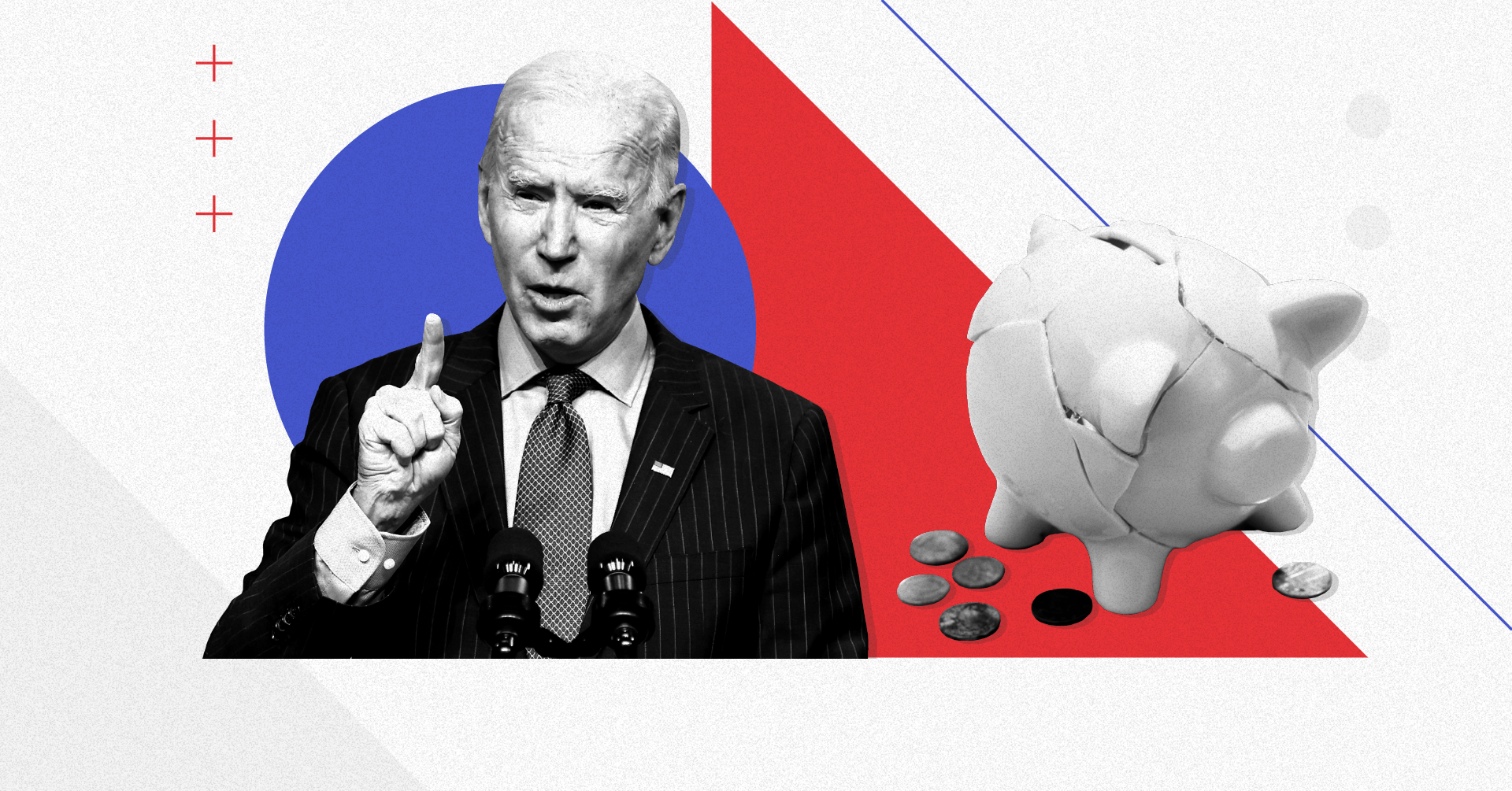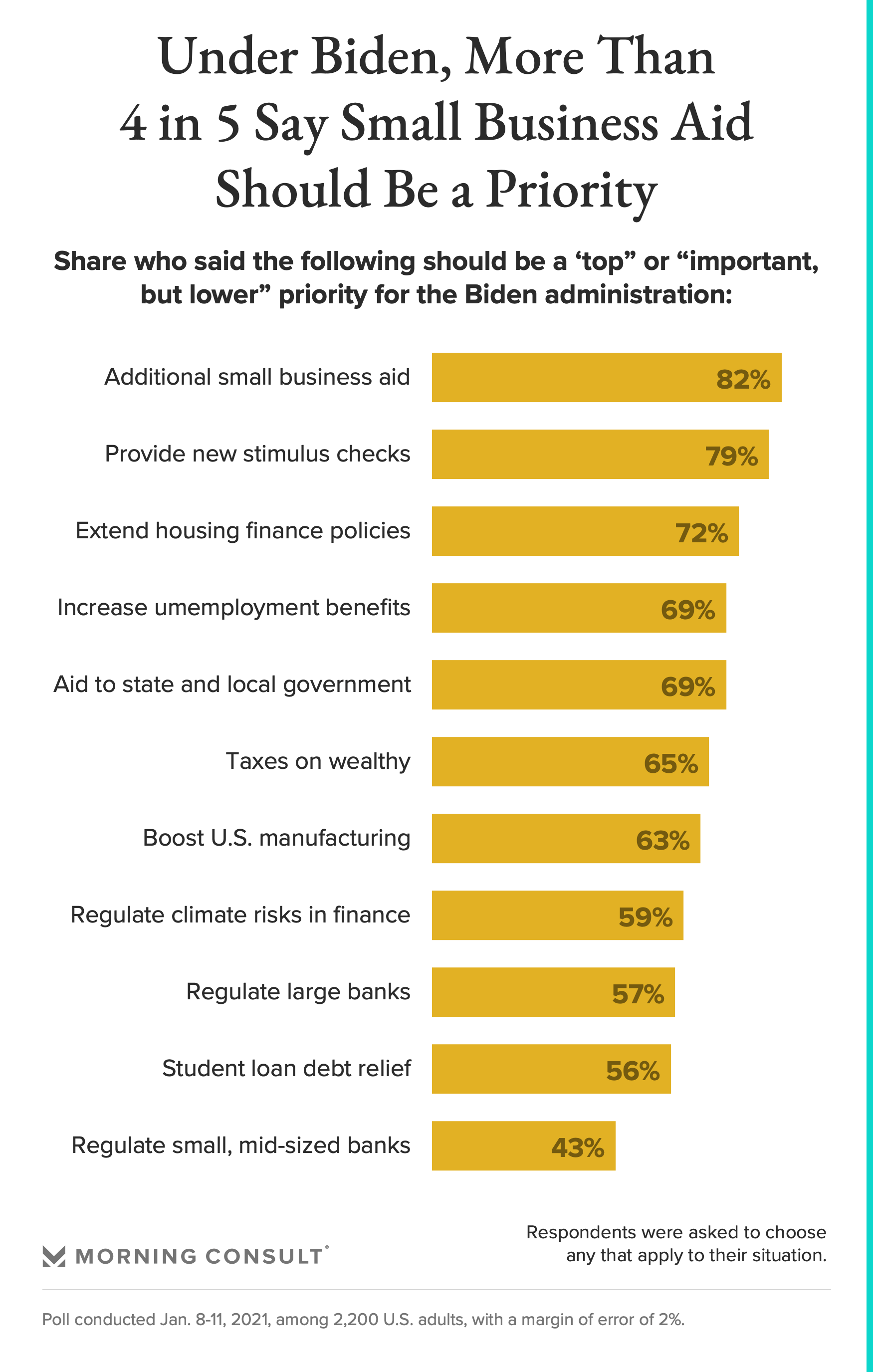On Economic Policies, About 4 in 5 Adults Want Biden to Prioritize Small Business Aid and Stimulus Checks

Key Takeaways
About 7 in 10 respondents identified housing policies, unemployment benefits and state and local aid as a priority for the next administration.
Regulating large banks (57%) and small and mid-sized banks (43%) were among the lowest priorities listed.
This is part of a suite gauging Americans' priorities for the incoming administration on a variety of pressing issues in the political, policy and business spaces. See our other work analyzing voters' preferences on health care, the environment, finance, housing and the general approach to governing, as well as how marketing leaders can look to flourish in a political landscape that is growing increasingly divided.
The coronavirus pandemic has dominated economic policy over the past year, with direct aid to Americans and small businesses accounting for some of the only significant bipartisan measures adopted during the Trump administration.
Now, with President-elect Joe Biden ready to take office alongside a Democratic-controlled Congress, it should be slightly easier to push policy through to law. Some of the economic priorities Democrats have clamored for throughout the pandemic could realistically be implemented.
A new Morning Consult poll asked respondents how much importance they assigned to different economic priorities under the Biden administration, finding that there’s still a large appetite for additional aid. And other, less immediate measures advocated for by Democrats also enjoy high levels of support.

Small business aid topped the list of economic priorities for the Biden administration, according to the survey, which polled 2,200 U.S. adults from Jan. 8-11 and has a margin of error of 2 percentage points. Eighty-two percent said this should be a “top priority” or “an important, but lower priority” for the next four years. Providing further economic stimulus checks was right behind, with backing from 79 percent of adults.
Extending mortgage forbearance policies and an eviction moratorium came in slightly below the other priorities at 72 percent. Unemployment benefits and aid to state and local governments -- which were argued for by Democrats during economic stimulus debates and opposed by some Republican lawmakers -- each garnered backing from 69 percent of the public.
Taxes on wealthy Americans also received large levels of support at 65 percent, though Democrats (81 percent) were much more favorable to such measures than Republicans (45 percent). While some Democrats have called for a wealth tax, Biden has said his plan would raise taxes on capital gains, payrolls and individual incomes for households earning more than $400,000 a year.
Early in the campaign, Biden touted a “Made in America” tax credit, and promised to promote American manufacturing by encouraging domestic production via an offshoring tax. In the survey, “Made in America” policies landed in the bottom half of the economic options, with 63 percent saying it should be a priority, though the idea was more popular among Republicans (74 percent support) than Democrats (59 percent).
Claire Williams previously worked at Morning Consult as a reporter covering finances.
Related content

As Yoon Visits White House, Public Opinion Headwinds Are Swirling at Home

The Salience of Abortion Rights, Which Helped Democrats Mightily in 2022, Has Started to Fade
